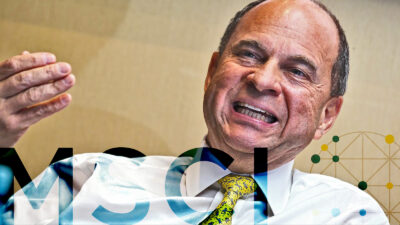As funds queue up for platforms, SMSFs no longer seen as the enemy
Andrew Bloore, the founder of SMSF platform provider SuperIQ, believes that large super funds are seeing that they are better off working together with the self-managed market rather than “tearing each other apart”.
“We are not the enemy,” he says. “The emerging superannuation landscape allows people to move out of an industry fund, once they have a certain level of assets, and then perhaps back in when they reach a certain age and don’t want to do it themselves anymore.”
SuperIQ offers “white labeling” of its system to funds and other institutions, as well as a direct or advised service. The company, which started only two years ago and is 49 per cent owned by AMP, has 19 white label clients, although there are no super funds among them yet.
Most of the big funds have been looking at introducing an SMSF platform to counter the loss of their high account balance members to the self-managed sector.
AustralianSuper was the first to finalise its platform, provided by systems group FNZ and broker UBS, early last year. Since then, Telstra Super and HostPlus have also chosen the same service providers for similar offerings.
The advantage for members is that the platform gives them much greater control over their investments while still sitting under the fund’s trustee umbrella. They can usually maintain, for instance, far superior insurances through the big fund.
Bloore, who sits on an AMP strategy board, has been involved in several regulatory committee initiatives in recent years, including the Simple Super legislative committee, Installment Warrant committee, Superannuation Consultative Committee with the tax office and Jeremy Cooper’s Industry Review Panel.
His passion for and knowledge of the SMSF market in particular shine through in an interview.
SuperIQ research indicates that the average industry fund member “gets interested” in the performance of his or her account around the $70,000 balance, and then “gets interested” in the level of fees being charged around the $100,000 balance. By the time the balance is about $200,000, the average member wants control over it.
But while there are about 478,000 SMSFs (as at December, 2012) and their combined assets account for about 38 per cent of all superannuation in Australia, the number of superannuants covered is still only 3 per cent.
“They are definitely not for everyone,” Bloore says. “Control is an emotive driver. It is a deep-seated and personal thing.”
Bloore has spent about 25 years in super and super admin. He sold his previous company, Smartsuper, to Perpetual in 2008 for a reported $16 million.







